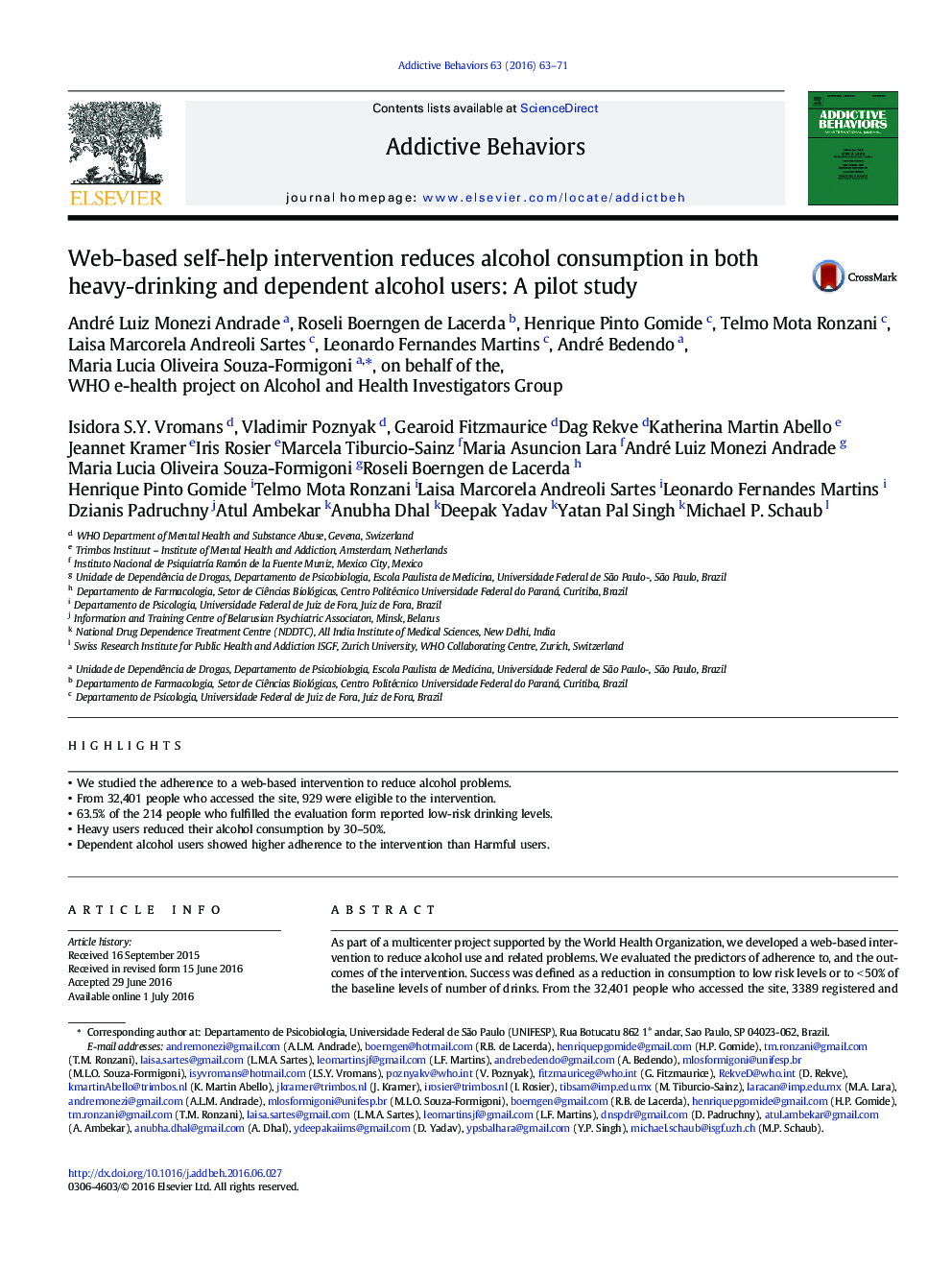| کد مقاله | کد نشریه | سال انتشار | مقاله انگلیسی | نسخه تمام متن |
|---|---|---|---|---|
| 898563 | 1472508 | 2016 | 9 صفحه PDF | دانلود رایگان |
• We studied the adherence to a web-based intervention to reduce alcohol problems.
• From 32,401 people who accessed the site, 929 were eligible to the intervention.
• 63.5% of the 214 people who fulfilled the evaluation form reported low-risk drinking levels.
• Heavy users reduced their alcohol consumption by 30–50%.
• Dependent alcohol users showed higher adherence to the intervention than Harmful users.
As part of a multicenter project supported by the World Health Organization, we developed a web-based intervention to reduce alcohol use and related problems. We evaluated the predictors of adherence to, and the outcomes of the intervention. Success was defined as a reduction in consumption to low risk levels or to < 50% of the baseline levels of number of drinks. From the 32,401 people who accessed the site, 3389 registered and 929 completed the full Alcohol Use Disorders Identification Test (AUDIT), a necessary condition to be considered eligible to take part in the intervention. Based on their AUDIT scores, these participants were classified into: low risk users (LRU; n = 319) harmful/hazardous users (HHU; n = 298) or suggestive of dependence users (SDU; n = 312). 29.1% of the registered users (LRU = 42; HHU = 90; SDU = 82) completed the evaluation form at the end of the six-week period, and 63.5% reported low-risk drinking levels. We observed a significant reduction in alcohol consumption in the HHU (62.5%) and SDU (64.5%) groups in relation to baseline. One month after the intervention, in the follow-up, 94 users filled out the evaluation form, and their rate of success was similar to the one observed in the previous evaluation. Logistic regression analyses indicated that HHU participants presented higher adherence than LRU. Despite a relatively low adherence to the program, its good outcomes and low cost, as well as the high number of people that can be reached by a web-based intervention, suggest it has good cost-effectiveness.
Journal: Addictive Behaviors - Volume 63, December 2016, Pages 63–71
